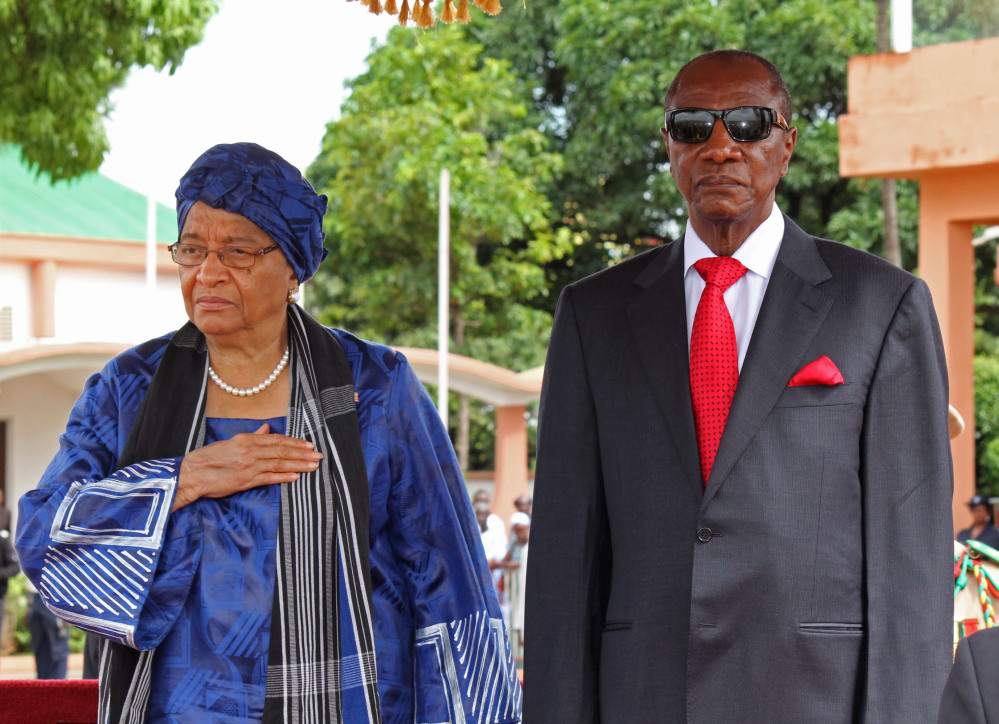CONAKRY, Guinea — An Ebola outbreak that has killed more than 700 people in West Africa is moving faster than efforts to control the disease, the head of the World Health Organization warned as presidents from the affected countries met Friday in Guinea’s capital.
Dr. Margaret Chan, the WHO’s director-general, said the meeting in Conakry “must be a turning point” in the battle against Ebola, which is now sickening people in three African capitals for the first time in history.
“If the situation continues to deteriorate, the consequences can be catastrophic in terms of lost lives but also severe socio-economic disruption and a high risk of spread to other countries,” she said, as the WHO formally launched a $100 million response plan that includes deploying hundreds more health care workers.
Medecins Sans Frontieres, also known as Doctors Without Borders, said the WHO pledge “needs to translate to immediate and effective action.” While the group has deployed some 550 health workers, it said it did not have the resources to expand further.
Doctors Without Borders said its teams are overwhelmed with new Ebola patients in Sierra Leone and that the situation in Liberia is now “dire.”
“Over the last weeks, there has been a significant surge in the epidemic – the number of cases has increased dramatically in Sierra Leone and Liberia, and the disease has spread to many more villages and towns,” the organization said in a statement. “After a lull in new cases in Guinea, there has been a resurgence in infections and deaths in the past week.”
At least 729 people have died since cases first emerged in March: 339 in Guinea, 233 in Sierra Leone, 156 in Liberia and one in Nigeria.
Two American health workers in Liberia have been infected, and an American man of Liberian descent died in Nigeria from the disease, health authorities there say.
Plans were underway to bring the two American aid workers – Nancy Writebol and Dr. Kent Brantly – back to the U.S. A small private jet based in Atlanta has been dispatched to Liberia.
While health officials say the virus is transmitted only through direct contact with bodily fluids, many sick patients have refused to go to isolation centers and have infected family members and other caregivers.
The fatality rate has been about 60 percent, and the scenes of patients bleeding from the eyes, mouth and ears has led many relatives to keep their sick family members at home instead. Sierra Leone is now sending teams door-to-door in search of Ebola patients and others who have been exposed to the disease.
Chan emphasized Friday that the general public “is not at high risk of infection,” but also said the Ebola virus should not be allowed to circulate widely.
“Constant mutation and adaptation are the survival mechanisms of viruses and other microbes,” she said. “We must not give this virus opportunities to deliver more surprises.”
Randy Schoepp, chief of diagnostics at the U.S. Army Medical Research Institute of Infectious Diseases, which is running the only lab in Liberia testing Ebola samples, said: “The virus is getting to large, dense, city areas. We’re now getting samples (to test) from all over.”
Copy the Story LinkSend questions/comments to the editors.



Success. Please wait for the page to reload. If the page does not reload within 5 seconds, please refresh the page.
Enter your email and password to access comments.
Hi, to comment on stories you must . This profile is in addition to your subscription and website login.
Already have a commenting profile? .
Invalid username/password.
Please check your email to confirm and complete your registration.
Only subscribers are eligible to post comments. Please subscribe or login first for digital access. Here’s why.
Use the form below to reset your password. When you've submitted your account email, we will send an email with a reset code.